Calcúra is an editorial visual journey through Sardinia. Through a series of conversations and photographic stories Acre has created a showcase of the Sardinian creative scene.
Several voices have been involved, and each of them represents an interweave, a root in the soil that creates intimate worlds waiting to be discovered.
Laboratorio Piroddu is a Sardinian reality that was born from the perfect combination of craftsmanship, innovation and respect for tradition in the setting of Sennori, a historical village in the Sassari area. From the very beginning, Giuseppe Piroddu‘s mission has been to enhance traditional Sardinian dress, from restoration to ex novo production and beyond, becoming a brand of excellence and absolute quality craftsmanship.
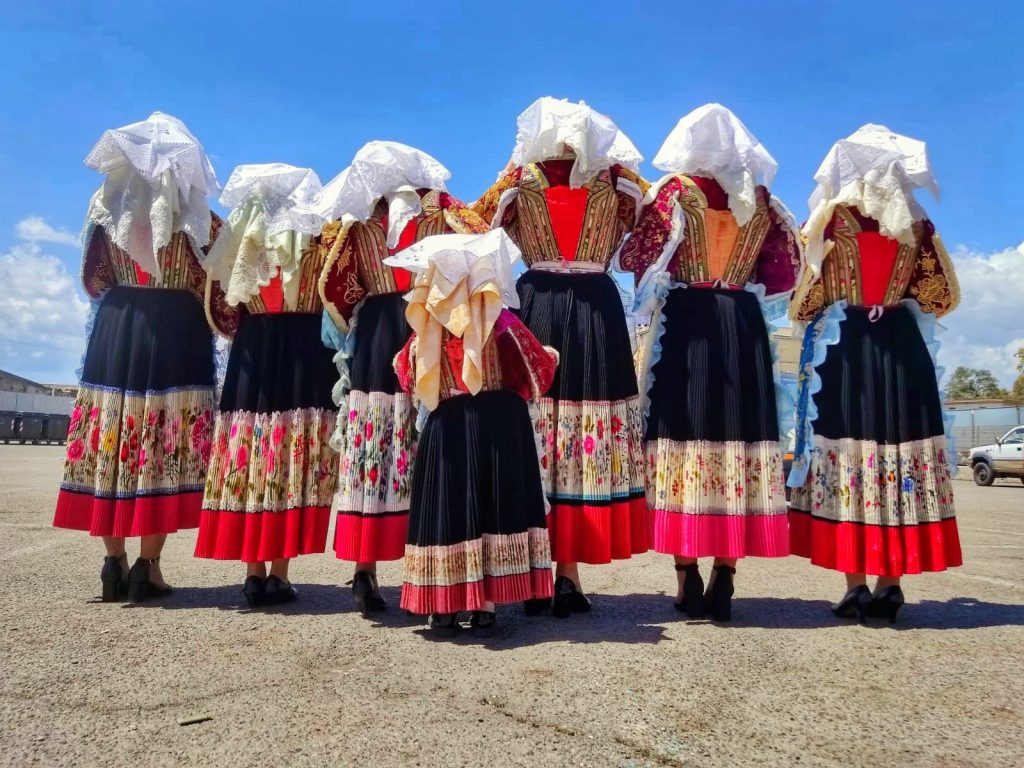
Tell us who you are and how the Laboratorio Piroddu was born.
Giuseppe: We are Giuseppe and Luca Piroddu, the owners of Laboratorio Piroddu. The Laboratory was born in 2015 after having worked in Rome, the call of Sardinia brought me back here and I decided to apply my knowledge, what I had learnt in Rome and in various tailor’s shops, to my passion, that of traditional Sardinian clothing. Over the years then, out of necessity, my brother joined me.
In fact, in my career I realised that in the production of traditional garments, a part remained as ‘undiscovered’, relating to the search for the right fabric, which is needed for that particular garment. In fact, I never stopped only at my own village, but tried to get to know and make clothes from other Sardinian villages. I just realised that the craftsmanship part did not allow me to also deal with the search for reproduction, fabrics and materials, so Luca decided to join me in this activity.
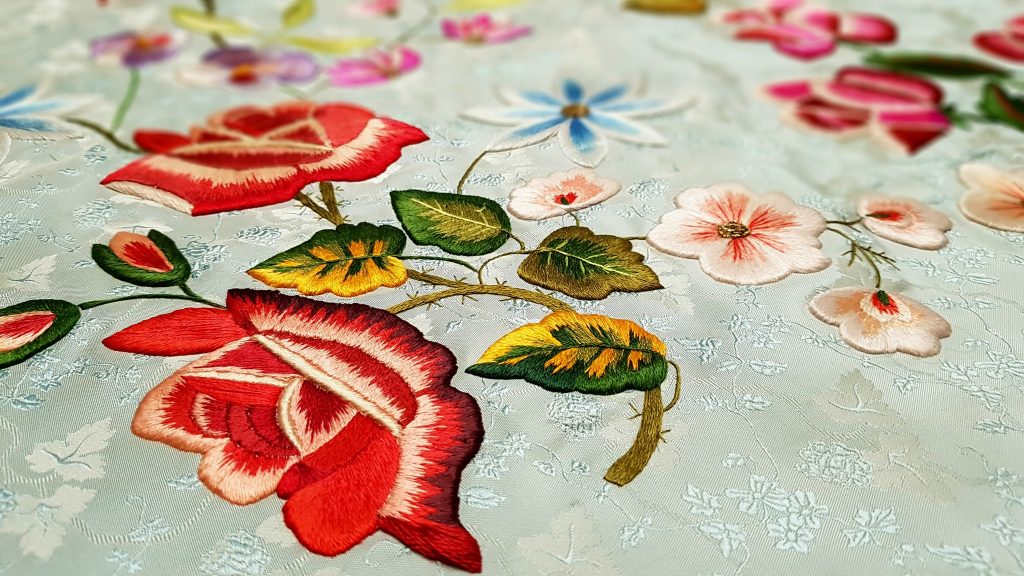
G: Our aim was to formalise what was considered customary. The traditional dress was made in every village by the neighbour, grandmother or aunt. We wanted to give this activity commercial recognition, to make this tradition a real activity and not simply relegate it to hobbies. We strongly believe that this sphere of Sardinian craftsmanship reflects what is Sardinian craftsmanship of excellence, and what we do is something that is disappearing.
Ours is a niche business we realise. But there is this need to make it a recognised activity, which has its own quality, its own commercial positioning both in Sardinia and outside. What we are interested in and like is to make traditional clothing known across at 360 degrees.
L: Giuseppe used a word that is very important to us, namely excellence: that is what we pursue as our goal. Laboratorio Piroddu is for everyone, but not for everyone. Here the doors are open to everyone, but those who come are looking for quality work, craftsmanship but also exclusivity. Now we are slowly working on different projects that take us beyond traditional Sardinian dress, we also want to move into the fashion world.
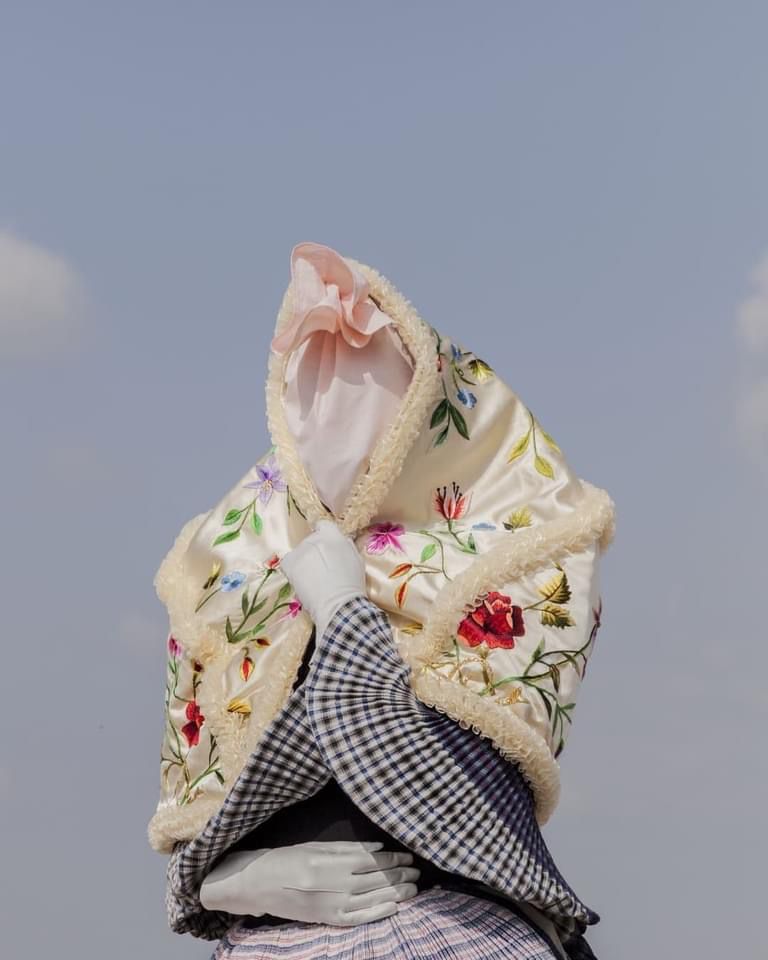
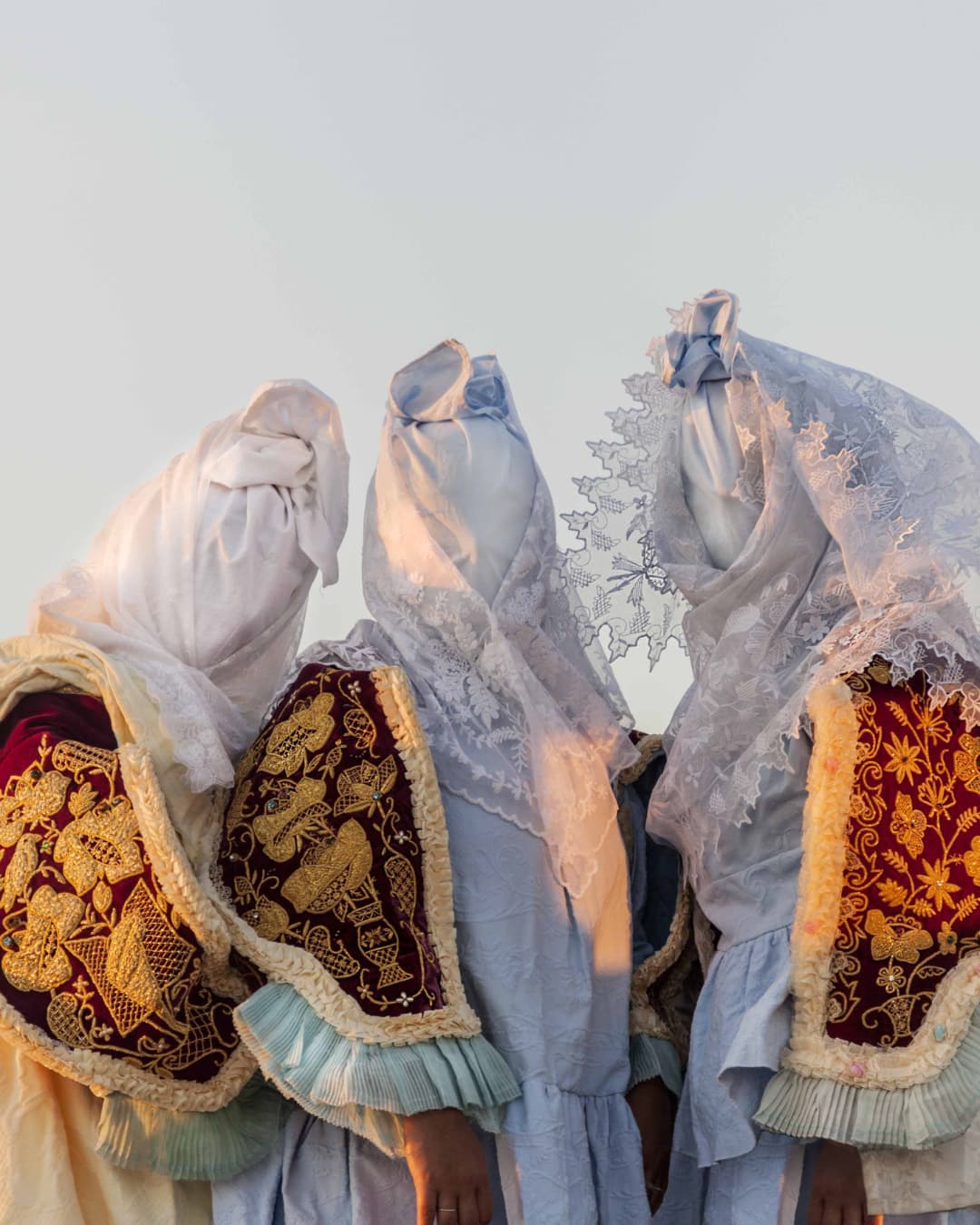
From your work, it is clear that one of the key words that distinguishes you is ‘research’, in relation to the quality of fabrics and shapes of Sardinian dress. How is this research expressed in your designs and where does it have its roots?
G: I usually call myself ‘son of art‘. L: you are, and grandson of art. G: it all started with my grandmother actually because my maternal grandmother was a dressmaker by profession. At home, my father was always involved in folk traditions, he was president of a cultural association, a folk group. So at home we always breathed sewing, tradition, folklore, Sardinian dress. So I combined what was my grandmother’s knowledge with my father’s passion and turned it into a profession.
Then over the years, I acquired a collection of traditional dresses that are part of our repertoire. They are clothes that date from the late 1800s to the early 1900s and are basically our source of inspiration. We realise that, I am talking about traditional clothing, it is not a replication of it for its own sake. I am interested in talking to the senior dressmakers, to know all the particularities, all the anecdotes.
There is this form of protection so it already feels like disrespect. I want to be able to give them something in which they recognise themselves and with which I am then satisfied.
L: Sure. But we can divide ourselves into two realities, there are those who want to experiment with us, and there are those who instead, and we find this a lot here in Sardinia, have a somewhat fundamentalist view.
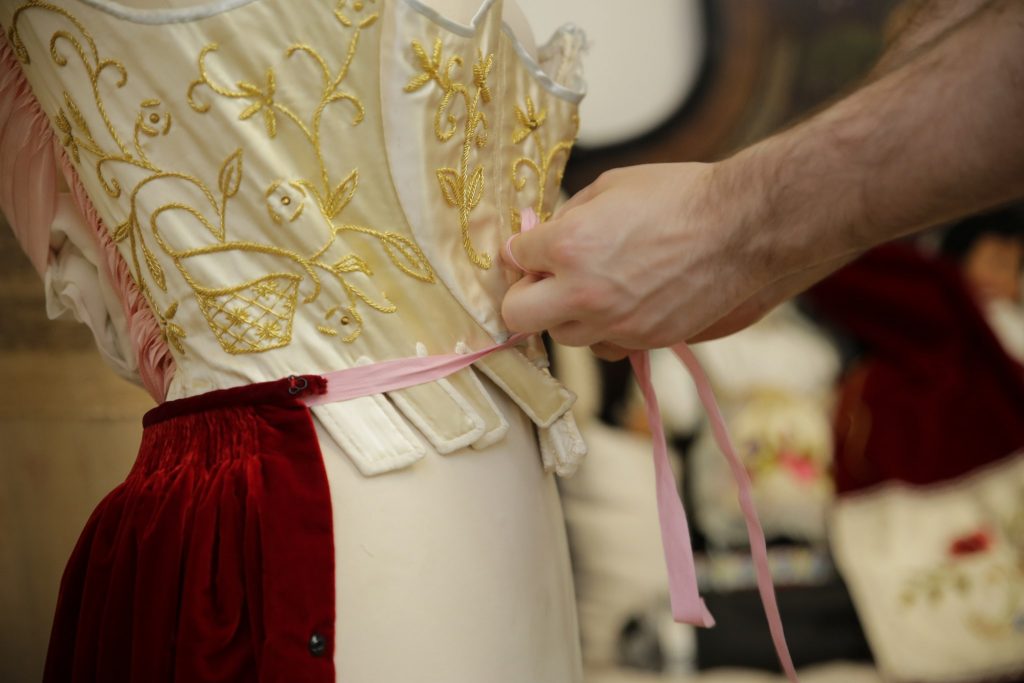
G: The basis of everything is respect. I don’t think I’m being disrespectful if I do a photo shoot where a piece is ‘distorted’ from its original context. On the contrary, I think it is a way to enhance what is traditional clothing that is only used in certain contexts. Locked up in those grandmother’s drawers, it is something that remains closed and an end in itself and dies like that. Decontextualising is in my opinion not a disrespect, on the contrary, we see it as an enhancement.
L: There’s an evolution that we’re following anyway. Today, the dress lives on thanks to us, people who continue to wear it today.
G: We have a beautiful heritage to protect that should not only be ours but belongs to everyone and can be enjoyed by everyone.
What are your future goals?
L: The goal is definitely to make Laboratorio Piroddu grow, to make it an increasingly solid company. Of course we will still have to maintain the craftsmanship aspect because that is what characterises us.
G: These years have served us to understand where we started from, who we are. Our roots were already solid, but being here, working especially on traditional dress, we know who we are and where we come from. Through fashion we manage to make Sardinia known, which is not just traditional dress for its own sake.
